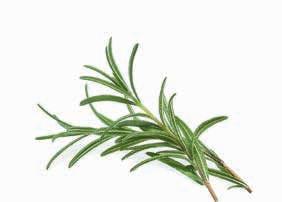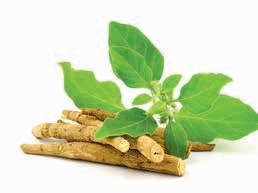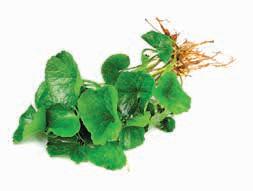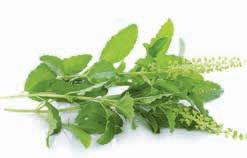
4 minute read
BRAIN POWER BOOSTERS
main feature

Advertisement
BRAIN POWER BOOSTERS

TIPS TO PRESERVE MEMORY AT ANY AGE
by Sheryl Kraft
Although it is completely normal to feel like our memories are failing us as we get older, this is not the time to panic. Regardless of age, it is always possible to learn, store and recall information, and there are numerous practices we can adopt to nourish and optimize our brains. Whether we’re looking for the car keys in all the wrong places or experiencing way too many tip-of-the-tongue moments, it may be high time to adopt the brain-boosting recommendations by these four experts.
Eating for Cognitive Power
“Having a better memory now and in the future means taking care of your brain and making the right lifestyle choices to slow down the aging process,” says Annie Fenn, M.D., founder of BrainHealthKitchen.com, who believes that what we choose to eat is one the most signifi cant decisions we make each day.
Foods high in antioxidants like vitamins C and E, beta carotene and selenium have been shown to slow age-related memory loss. Th ink berries, grapes (which contain resveratrol, a memory-enhancing compound), beets, broccoli, almonds, avocados, carrots, eggs, salmon, onions and dark, leafy greens.
Avoid foods high in saturated and trans fats, which can increase “bad” cholesterol
and lower “good” cholesterol. Studies find that high cholesterol diets can increase the risk of memory loss, among other cognitive functions.
Whole grains and legumes like cracked wheat, whole-grain couscous and lentils are complex carbohydrates that boost the brain by providing a steady, sustained supply of glucose, and are high in folate, the memory-boosting B vitamin.
Finally, don’t forget to include culinary herbs like curcumin, rosemary, saffron, oregano and mint. They all help support brain health, especially saffron, which contains a potent constituent called crocin that is associated with slowing cognitive decline in human and animal studies.

Brain-Nourishing Supplements and Stress Reduction
Wendy Warner, M.D., the founder of Medicine in Balance, an integrative healthcare practice in Langhorne, Pennsylvania, recommends Ginkgo biloba (one of the oldest living tree species in the world) and ginseng, which have both been found to help enhance memory with their neuroprotective and antioxidant effects. Noting that the brain works best with adequate nourishment, she asserts that these supplements can play a role in increasing blood circulation to the brain, thus improving its function.
Also on her list are Bacopa monnieri for its antioxidant capacity, Rhodiola rosea for its neuroprotective and antioxidant effects and licorice (Glycirrhiza glabra) for its ability to increase circulation in the central nervous system.
Warner recommends regular stress management techniques like yoga, qigong and tai chi as well, noting, “These all help lower inflammation and cortisol (an inflammatory stress hormone) and have been shown to improve memory.”

Medicinal Herbs for Mental Clarity
Heather Houskeeper is a certified herbalist, long-distance hiker and author. When venturing out into the wild, she is able to spot and identify hundreds of medicinal herbs, including her favorite, top five memory boosters, starting with Ginkgo biloba, as well as:
ROSEMARY (Rosmarinus officinalis) supports healthy blood flow to the brain. It can be enjoyed through food, tea or diffused as aromatherapy.
ASHWAGANDHA (Withania somnifera), traditionally ingested as food or tea, can support mental alertness, focus and clarity of mind. Mix ashwagandha powder with warm milk, hot water or broth.
HOLY BASIL (Ocimum tenuiflorum) is rich in antioxidants and supports cerebral circulation. Enjoy this delicious and fragrant herb as tea up to three times per day, use in cooking or take as a tincture.
GOTU KOLA (Centella asiatica) is a restorative herb that can support alertness and mental clarity. It is also popularly used as a tea, tincture or extract for up to 14 days at a time.

Slumber Savvy
Insufficient sleep can result in a variety of cognitive problems, including memory loss. Those suffering from obstructive sleep apnea (OSA), a common sleep disorder condition that affects breathing, should not ignore it.
High-quality sleep is key to reactivating memories, especially recalling the names of people we’ve recently met, according to Northwestern University researchers. Other experts have reported a strong association between sleep and the formation of memories. Strive for uninterrupted and deep sleep, as follows:
n The ideal amount for most adults is between seven and nine hours a night. n Wind down before bed with a consistent routine like reading, stretching or meditation. n Keep the bedroom cool—somewhere around 65° F—and dark.
n Shut off all electronics.
n Avoid late-day caffeine, alcohol and spicy, heavy meals too close to bedtime.
Treating OSA is important to improve both sleep and brain health, says Thomas M. Holland, M.D., of the Rush Institute for Healthy Aging, explaining, “Impaired sleep can lead to biochemical processes that can impact memory and cognition.”

Sheryl Kraft writes about health and wellness for Sage by Gaia and a variety of print and online media sources. Visit SherylKraft. com and SageByGaia.com to read more of her work.








